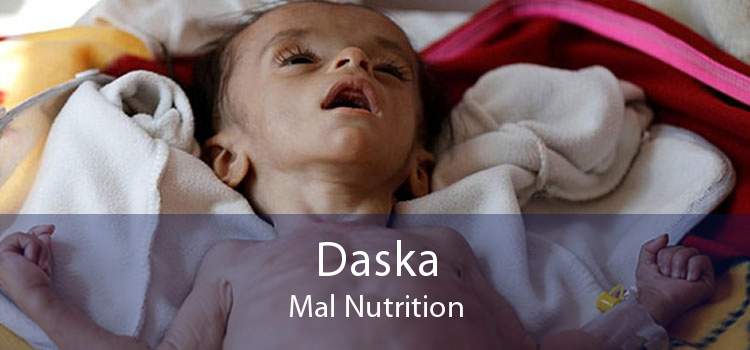Causes of malnutrition include inappropriate dietary choices, a low income, difficulty obtaining food, and various physical and mental health conditions. Under-nutrition is one type of malnutrition. It occurs when the body does not get enough food. It can lead to delayed growth, low weight, or wasting.
If a person does not get the right balance of nutrients, they can also have malnutrition. It is possible to have obesity with malnutrition. When a person has too little food, a limited diet, or a condition that stops their body from obtaining the right balance of nutrients, it can have a severe impact on their health. In some cases, this can become life-threatening.
A person with under-nutrition may lack vitamins, minerals, and other essential substances that their body needs to function.

Malnutrition can lead to:
- Short- and long-term health problems
- Slow recovery from wounds and illnesses
- A higher risk of infection
- Difficulty focusing at work or school
Some deficiencies can trigger specific health problems. For example:
A lack of vitamin A
Around the world, many children develop vision problems due to a lack of vitamin A.
A lack of vitamin C
A lack of vitamin C can result in scurvy. Scurvy is rare in the United States, but it can develop if a person does not have a varied diet with plenty of fresh fruits and vegetables. Older adults, young children, those who consume a lot of alcohol, and some people with certain mental health conditions may be particularly at risk.
An overall deficiency
Lacking all nutrients can lead to kwashiorkor, which is a “severe form of malnutrition.†One symptom of this condition is a distended abdomen. Marasmus is another potential result of severe nutritional deficiency. A person with marasmus will have very little muscle or fat on their body.
Symptoms
Some signs and symptoms of malnutrition include:
- Lack of appetite or interest in food or drink
- Tiredness and irritability
- An inability to concentrate
- Always feeling cold
- Depression
- Loss of fat, muscle mass, and body tissue
- A higher risk of getting sick and taking longer to heal
- Longer healing time for wounds
- A higher risk of complications after surgery
Eventually, a person may also experience difficulty breathing and heart failure.
In children, there may be:
- Lack of growth and low body weight
- Tiredness and a lack of energy
- Irritability and anxiety
- Slow behavioral and intellectual development, possibly resulting in learning difficulties
Treatment is possible. In some cases, however, malnutrition can have long-term effects.
Anorexia nervosa is a mental health condition that can lead to severe malnutrition. Learn more about it here.
Causes
Malnutrition can occur for various reasons. The sections below outline these potential causes in more detail.
A low intake of food
Some people develop malnutrition because there is not enough food available or because they have difficulty eating or absorbing nutrients.
This can happen as a result of:
- Cancer
- Liver disease
- Conditions that cause nausea or make it difficult to eat or swallow
- Taking medications that make eating difficult — due to nausea, for example
Mouth problems such as badly fitting dentures may also contribute to malnutrition.
Mental health conditions
Under-nutrition or malnutrition can affect people with:
- Depression
- Dementia
- Schizophrenia
- Anorexia nervosa
Social and mobility problems
Factors that can affect a person’s eating habits and potentially lead to malnutrition include:
- Being unable to leave the house or reach a store to buy food
- Finding it physically difficult to prepare meals
- Living alone, which can affect a person’s motivation to cook and eat
- Having limited cooking skills
- Not having enough money to spend on food
Digestive disorders and stomach conditions
If the body does not absorb nutrients efficiently, even a healthful diet may not prevent malnutrition.
Examples of digestive and stomach conditions that may cause this include:
- Crohn’s disease
- Ulcerative colitis
- Celiac disease
- Persistent diarrhea, vomiting, or both
Alcohol use disorder
Consuming a lot of alcohol can lead to gastritis or long-term damage to the pancreas. These issues can make it hard to digest food, absorb vitamins, and produce hormones that regulate metabolism. Alcohol also contains calories, so a person may not feel hungry after drinking it. They may therefore not eat enough healthful food to supply the body with essential nutrients.



